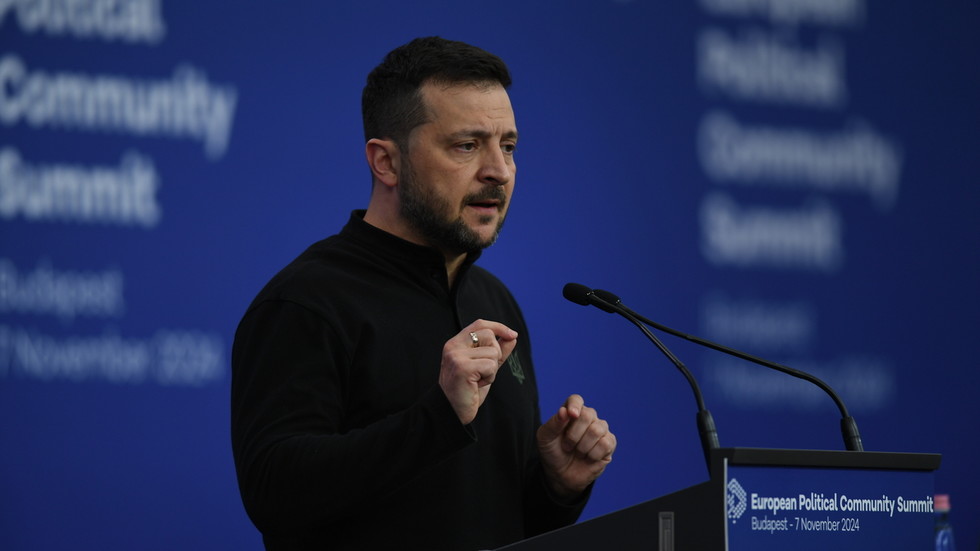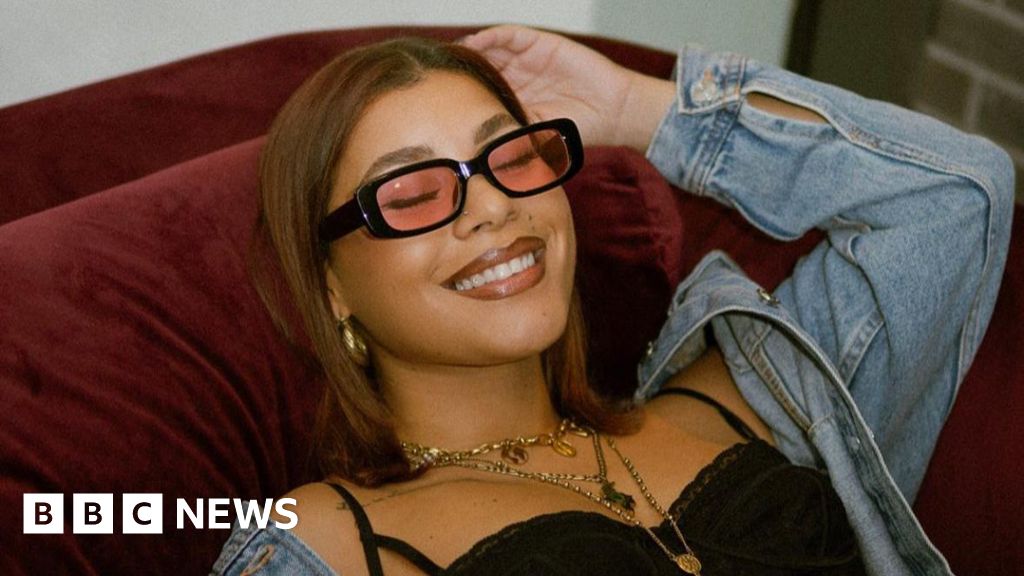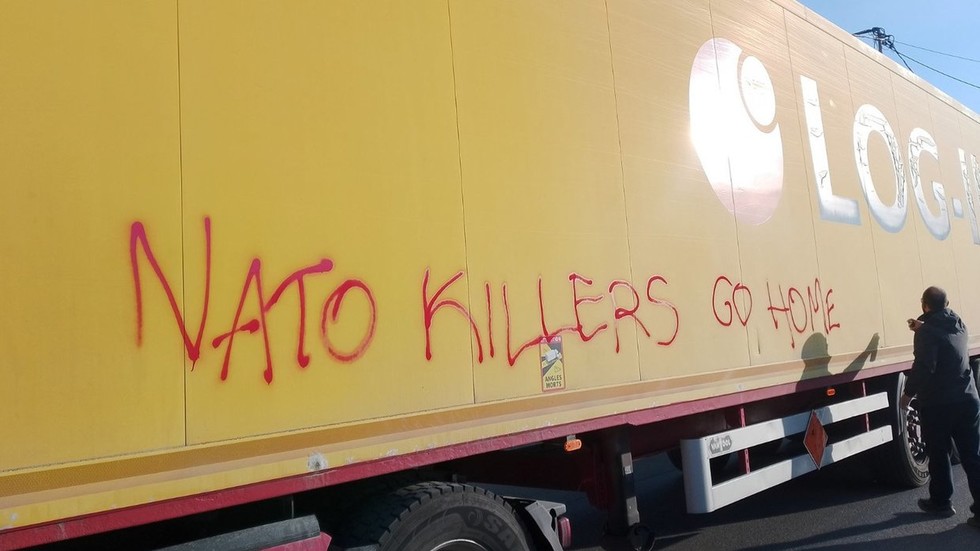
For free real time breaking news alerts sent straight to your inbox sign up to our breaking news emails
Sign up to our free breaking news emails
An online movement is quietly gathering momentum with calls for social media users to block global celebrities and their businesses in protest against their perceived silence on Israel’s war on Gaza.
There #Blockout2024 or “Chop Chop” movement reflects frustration towards celebrities who followers believe haven’t leveraged their influence and platforms to highlight the humanitarian crisis in the Middle East. According to one TikToker, the goal of the campaign is to “curb specific revenue streams and fame” of such celebrities.
On social media platforms like TikTok, Instagram and X, people are circulating lists of celebrities to unfollow and block, resulting in notable declines in followers, according to Social Blade, a social media analytics site in the US.
Reality TV star Kim Kardashian, for example, has reportedly lost hundreds of thousands of followers on Instagram alone due to being sent to this “digital guillotine”, while Taylor Swift has lost some 200,000 followers on the platform.
When did the movement start?
When celebrities from around the world were walking the red carpet at the Met Gala in New York earlier this month, people on social media juxtaposed pictures of the expensively-clad stars with horrifying visuals of death and destruction coming out of Gaza. Some expressed outrage at the display of wealth and luxury at the annual gala while thousands of women and children were being slaughtered in the besiegedenclave.
Some suggested that the juxtaposed images – of celebrities living it up in New York and of Palestinians blockaded, starving and dying – were akin to The Hunger Games, a dystopian world from the novels of Suzanne Collins.
“This is genuinely so dystopian,” a social media commentator who runs the Climate Revolution TikTok page said. “These people are living in a different plane of reality than the rest of us.
“They aren’t even affected by the same political and economic issues that matter to us because rich people will always have the means to circumvent them,” he said. “War, abortion access, rent prices, sea level rise, extreme heat, food scarcity, these things don’t concern them.
“What do they actually have to lose by speaking out about what is going on in Rafah? Nothing.”
In response to what was seen as the insensitivity of the celebrities, the #blockout2024 movement gained momentum, pushing for the blocking of global stars who chose to stay silent.
Why does #Blockout2024 matter?
The latest Gaza conflict began with an attack by Hamas on southern Israel on 7 October last year,killing around 1,200 people before taking more than 250 hostages back to the Gaza Strip. Israel then launched a fierce bombardment, ground assault and blockade on Gaza,in which more than 35,000 Palestinians have been killed according to health officals in the Hamas-run strip. More than 80 per cent of the enclave’s 2.2 million people have been rendered homeless and on the brink of starvation.
Except for a few notable exceptions – such as Macklemore and the Artists4Ceasefire collective – many global stars and influencers have avoided commenting publicly on the crisis in Gaza.
Actor Nicola Caughlan said in a recent interview that she was told she would lose work in Hollywood if she called for a Gaza ceasefire, while Susan Sarandon was dropped by her agent over comments she made at a pro-Palestinian rally.
American rapper Macklemore recently released a protest song titled “Hind’s Hall”, dedicated to the memory of Hind Rajab, a six-year-old Palestinian girl who was killed by Israeli forces in January while trapped in a car with her slain relatives and awaiting rescue.
According to Social Blade, he gained thousands of new followers on social media platforms in the days after the song was released.
Macklemore has said he will donate all proceeds from the song on streaming platforms to the United Nations Relief and Works Agency (UNRWA), the main UN agency providing aid to Palestinians. The video of the song includes footage of people protesting and expressing solidarity with Palestinians alongside assorted clips featuring police officers and politicians.
How are social media users finding celebrities to block?
“I made a Google Doc of every celebrity that attended the Met Gala and now I’m going through and writing if they’ve been silent, or if they’ve been using their platform to speak up about the genocide in Gaza,” a TikTok user said in a video.
The TikToker created a video displaying a long list of celebrity names against a black background.
Some of the names, including Zendaya, Nicki Minaj, Keith Urban and Andrew Scott, were accompanied by the word “SILENT” in red. The TikToker pointed out that while some celebrities like Zendaya had spoken out in the past, they hadn’t done so recently. They said Zendaya had shown support for Palestinians in October but had not commented further since then.
The Independent has approached representatives for Zendaya, Minaj, Urban and Scott, as well as Kardashian and Swift, for comment.
Several pages on Instagram and TikTok have surfaced that have made blocking celebrities easier. For example, a new page on Instagram called @blockout.2022 — the name is meant to confuse the Instagram algorithm that earlier took down a similar page called “#blockouts2024” — says in its bio: “Go in the Following and Block them all!”
“We gave them their platforms. It’s time to take it back — take our views away, our likes, our comments, our money — by blocking them on all social media and digital platforms,” a TikToker called @ladyfromtheoutside urged in a video recently.
‘Let Them Eat Cake’: Why is Marie Antoinette, the Queen of France who disparaged the poor, being invoked?
On 7 May, TikTok influencer Haley Kalil faced backlash after posting a video lip-syncing “let them eat cake” outside the Met Gala on her TikTok account, which goes by the username @haleyybaylee.
The phrase, associated with Marie Antoinette, symbolises the detachment of the elite amid widespread poverty and crisis.
Kalil’s video angered many people online as it came after a statement by the head of the United Nations World Food Program that northern Gaza had entered “full-blown famine” after nearly seven months of war.
Later, Kalil apologised on 10 May, stating she wasn’t officially invited to the Met Gala and was there as a host with E! News. She justified the use of the “let them eat cake” by saying that it was “trending” on TikTok at the moment.
But the comparisons were not lost on her followers. One user posted a video saying that Kalil’s TikTok might have “unlocked the rage of millions of people”.
How effective has #Blockout2024 been so far?
“The Met Gala was a bit of a hyperbolic moment that got a lot of people’s attention,” Marcus Collins, an assistant professor of marketing at the University of Michigan, told NPR.
“The celebrity boycotts had existed, but they weren’t really at the top of the social zeitgeist. But then you have a moment like the Met Gala that wasn’t really related to the conflict, but the pieces were all at play. When the attacks [in Gaza] were happening the same day, the juxtaposition just got people talking and moving.”
He continued: “The hope is that it will either bring more visibility to the cause and shift the balance in getting political forces like the US government to do something to mitigate the violence that’s happening in the Middle East. But as rational as that logic may seem, I don’t think there are very many examples where this has actually worked.”
Eddy Borges-Rey, an associate professor in residence at Northwestern University in Qatar, specialises in researching social media and algorithms. He told Al Jazeera: “Social media celebrities heavily rely on high visibility and engagement to attract and maintain advertising deals.”
He added that when someone unfollows a celebrity, they simply stop seeing the celebrity’s posts in their feed. But “if someone blocks the celebrity, they completely cut off all interaction with their content”.
“A reduction in visibility can lead advertisers to perceive the celebrity as less valuable, potentially cutting back on the amount they are willing to pay for ads on the celebrity’s profile, thereby directly affecting their ad revenue,” he added.

 5 months ago
19
5 months ago
19









